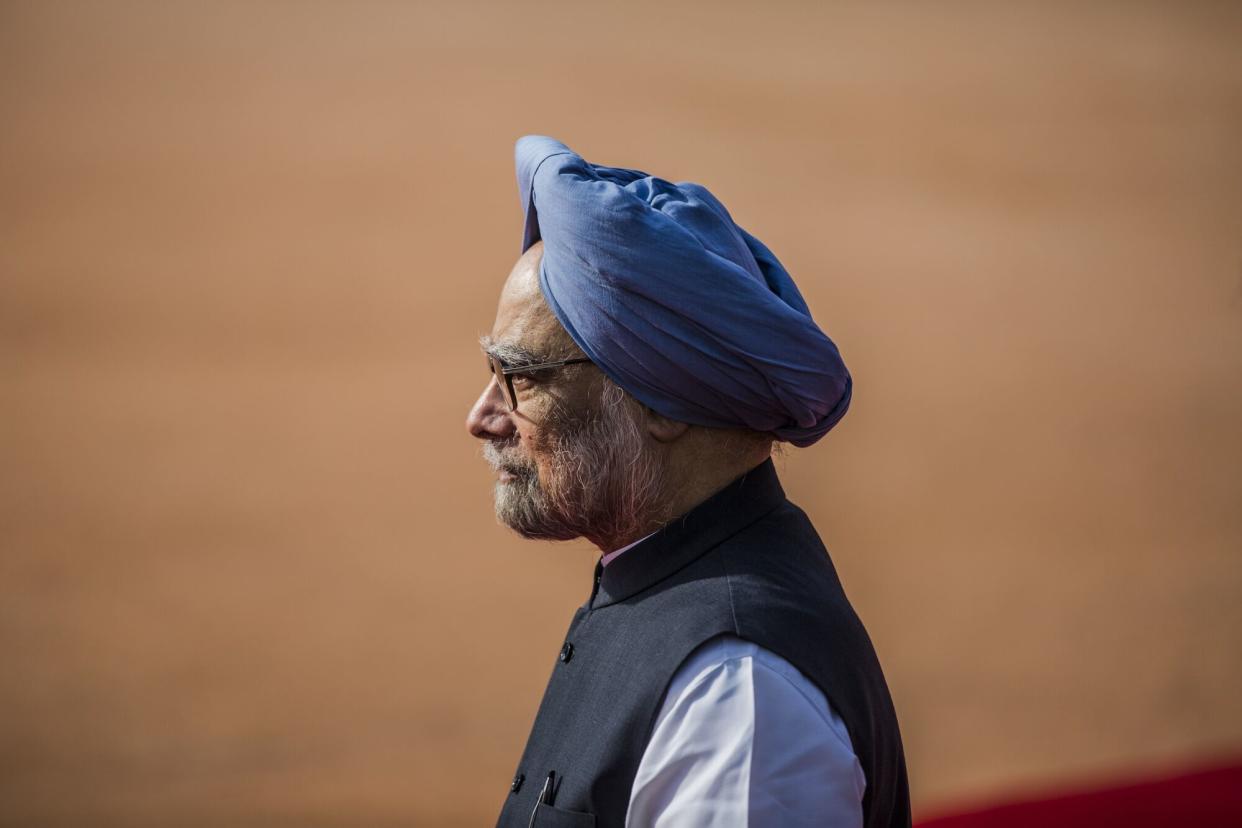Manmohan Singh, Architect of India Reforms, Bows Out of Politics

(Bloomberg) -- Sign up for the India Edition newsletter by Menaka Doshi – an insider's guide to the emerging economic powerhouse, and the billionaires and businesses behind its rise, delivered weekly.
Most Read from Bloomberg
Apple Explores Home Robotics as Potential ‘Next Big Thing’ After Car Fizzles
A Million Simulations, One Verdict for US Economy: Debt Danger Ahead
Manmohan Singh formally retired from politics Wednesday after three decades in Indian Parliament, during which he opened the economy to global competition and saw it go from the brink of default to become one of the largest in the world.
Singh was drafted to head the finance ministry in 1991, when India’s foreign exchange reserves couldn’t cover even a month of imports. Years of living beyond its means had left the country vulnerable to a shock when global oil prices spiked and forced it to pawn gold for a loan from the International Monetary Fund. In a landmark decision, Singh abolished export subsidies, devalued the rupee, and allowed companies to manufacture without a license from the government.
“Let the whole world hear it loud and clear,” Singh said in his maiden budget speech. “India is now wide awake. We shall prevail. We shall overcome.”
Singh went on to become the nation’s prime minister in 2004 and served two terms before corruption scandals, rocketing inflation and a brutal terrorist attack engulfed his government and contributed to an electoral defeat by Narendra Modi’s party in 2014.
As prime minister, Singh deepened the welfare system with guaranteed job programs for the poor and made education a right for every Indian child. His government pioneered developments including a national identity number and a national goods and services tax, which Modi implemented after taking office.
Singh, 91, served as a nominated member of the upper house from 1991-2024. His retirement comes weeks ahead of general elections, where Modi is widely expected to win a record third term.
“You have shown that it is possible to pursue economic policies that were equally beneficial to large industries, young entrepreneurs, small businesses, the salaried class and the poor,” Mallikarjun Kharge, president of Singh’s Indian National Congress Party, said in a post on X. “We live in times that are largely shaped by you.”
Most Read from Bloomberg Businessweek
©2024 Bloomberg L.P.



